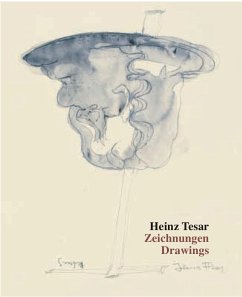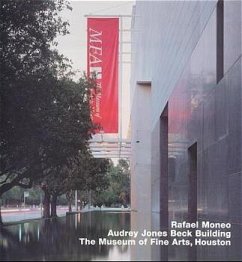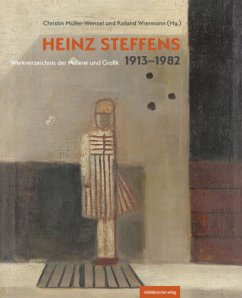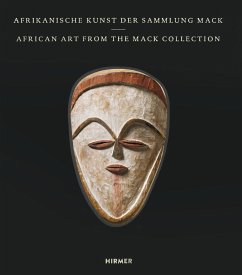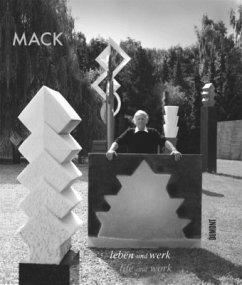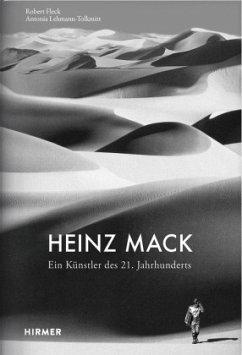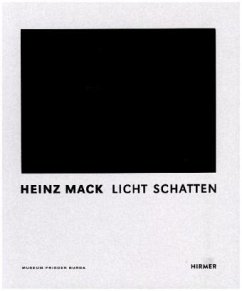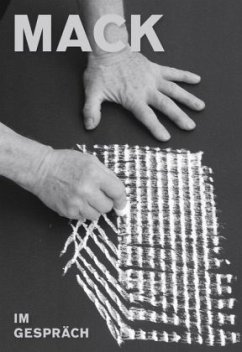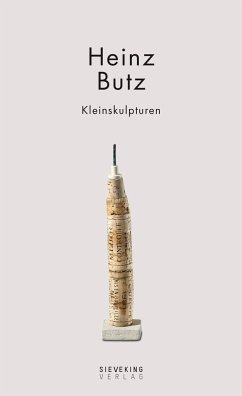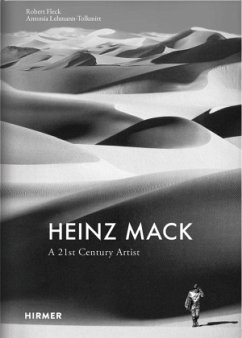Nicht lieferbar
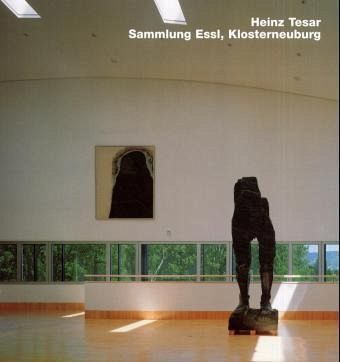
Heinz Tesar. Sammlung Essl, Klosterneuburg
Einf. v. Gottfried Knapp. Dtsch.-engl.
Mitwirkender: Richters, Christian; Knapp, Gottfried
Versandkostenfrei!
Nicht lieferbar
Heinz Tesar's buildings occupy a very particular place on the Austrian architectural scene, which is anyway populated by a lot of individualists. There is a great deal of creative imagination at work here, which always operates outside the scope of modern routine.The town of Klosterneuburg, north of Vienna, has become something like an artistic home for Tesar. The Schömerhaus, an office building whose huge oval central hall leaves convention far behind, and the Protestant church, which has a rounded floor plan like a tear-drop, were now followed by the impressive museum he has built here to h...
Heinz Tesar's buildings occupy a very particular place on the Austrian architectural scene, which is anyway populated by a lot of individualists. There is a great deal of creative imagination at work here, which always operates outside the scope of modern routine.
The town of Klosterneuburg, north of Vienna, has become something like an artistic home for Tesar. The Schömerhaus, an office building whose huge oval central hall leaves convention far behind, and the Protestant church, which has a rounded floor plan like a tear-drop, were now followed by the impressive museum he has built here to house 4000 objects from the private Essl collection, which includes the most important collection of Austrian art after 1945. The floor plan is based on a triangle. Above a storage floor that runs the whole length of the building three individually shaped architectural entities are grouped around a green courtyard. The elaborately orchestrated section of the building on the short leg of th e triangle accommodates the entrance foyer, staircase, library, offices and a flat. The long side of the triangle contains the hall for temporary exhibitions extending over two storeys; on the lower floor it is glazed on the courtyard side, and in the upper storey it is lit partly from the side and partly from the skylights in the slightly undulating roof. The hypotenuse is made up of a sequence of parallel galleries; they are topped by lanterns, which admit a great deal of daylight. Finally, Tesar gives the cubic building an organic touch with a curved flourish at the tip of the triangle. Following Gehry and Zumthor, who have recently made important contributions to the theme of art museums, Tesar is now of-fering a variant that responds very physically to its surroundings, creating individual spaces with a variety of light.
The town of Klosterneuburg, north of Vienna, has become something like an artistic home for Tesar. The Schömerhaus, an office building whose huge oval central hall leaves convention far behind, and the Protestant church, which has a rounded floor plan like a tear-drop, were now followed by the impressive museum he has built here to house 4000 objects from the private Essl collection, which includes the most important collection of Austrian art after 1945. The floor plan is based on a triangle. Above a storage floor that runs the whole length of the building three individually shaped architectural entities are grouped around a green courtyard. The elaborately orchestrated section of the building on the short leg of th e triangle accommodates the entrance foyer, staircase, library, offices and a flat. The long side of the triangle contains the hall for temporary exhibitions extending over two storeys; on the lower floor it is glazed on the courtyard side, and in the upper storey it is lit partly from the side and partly from the skylights in the slightly undulating roof. The hypotenuse is made up of a sequence of parallel galleries; they are topped by lanterns, which admit a great deal of daylight. Finally, Tesar gives the cubic building an organic touch with a curved flourish at the tip of the triangle. Following Gehry and Zumthor, who have recently made important contributions to the theme of art museums, Tesar is now of-fering a variant that responds very physically to its surroundings, creating individual spaces with a variety of light.




